Should I still be working with influencers? Why should I be working with micro-influencers? Why am I getting UGC content creators messaging my business?
Well… today, more than ever before, brands are faced with the challenge of navigating an increasingly complicated and rapidly changing digital landscape. A landscape where the voice of consumers is becoming increasingly influential and the surge of influencer marketing is shaping the way we consume products and services.
In the past, user-generated content and influencer marketing might have been viewed as separate strategies. However, it’s becoming more apparent that a balanced combination of both can improve business success, increase audience interaction, and produce better outcomes.
This blog post will take you through the journey of content creation, from the days of celebrity endorsements to the era of influencers and micro-influencers, and now the growing trend of user-generated content (UGC). We’ll look at why it’s important for businesses to use a mix of these approaches, considering the shifting landscape of consumer trust. Bear in mind that consumers today are more likely to trust a brand that uses UGC over influencer marketing. But that doesn’t mean influencer marketing doesn’t hold sway. The key to success lies not in choosing one over the other, but in knowing when and how to use each strategy effectively.
The age of celebrity endorsements
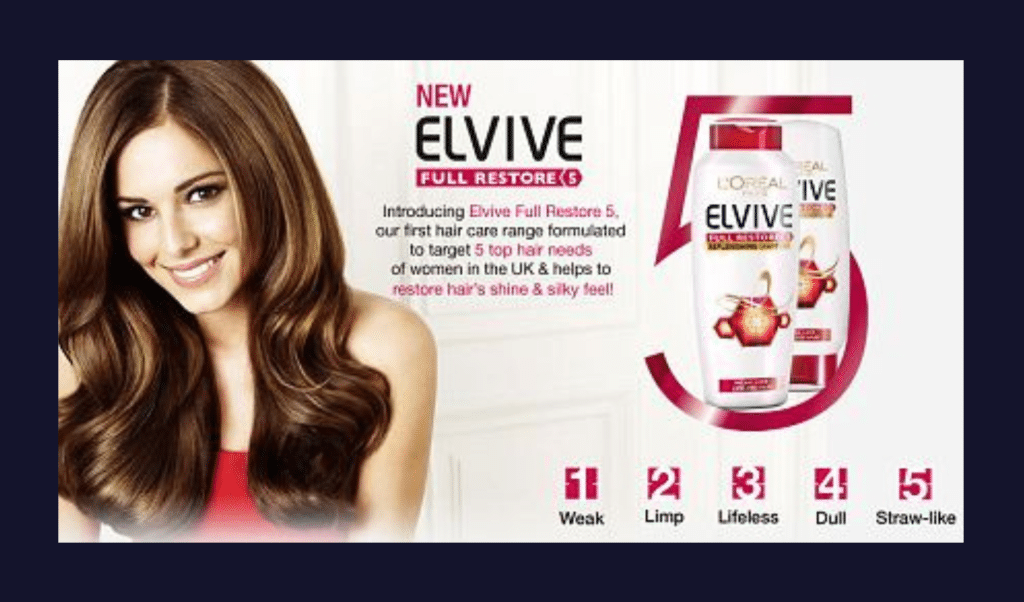
Historically, businesses relied on celebrity endorsements to give their brand the recognition and credibility they craved. This technique banked on the celebrity’s public image, fame, and perceived authority. Consumers felt connected to these celebrities and trusted their recommendations, making celebrity endorsements a potent marketing tool. Big brands signed up A-listers and rode on their wave of popularity to drive their products into consumers’ hearts and homes. Take a look at this example of Cheryl Cole and her collaboration with L’Oreal for example. This advertisement was all over our TV screens for what felt like years!
The birth of influencer marketing
With the advent of social media, the marketing landscape began to change. Instead of just seeing celebrities on TV or at the cinema, people could now follow their favourite personalities on platforms like Instagram, Facebook, and Twitter. It was a much more personal and intimate connection, and brands were quick to exploit this new avenue.
This was the birth of influencer marketing. Social media stars with large followings began endorsing products or services, wielding influence over their millions of followers. Unlike celebrity endorsements, influencer marketing had a more authentic feel. These influencers weren’t distant Hollywood stars but ordinary people who had amassed followings based on their skills, talents, or unique perspectives. This relatability made them highly influential, as followers felt a connection to them and trusted their recommendations.
The rise of micro-influencers
As social media evolved, so did the nature of influencer marketing. The next wave in this arena was the rise of micro-influencers: individuals who might not have over 100,000 followers but have a niche, engaged, and loyal audience. Their lower follower counts, often in the thousands or tens of thousands, didn’t mean they had less influence. On the contrary, their smaller communities often meant they had a stronger connection and higher engagement rates with their audience. Brands began partnering with these micro-influencers to reach their target audiences more effectively and authentically.
The UGC revolution
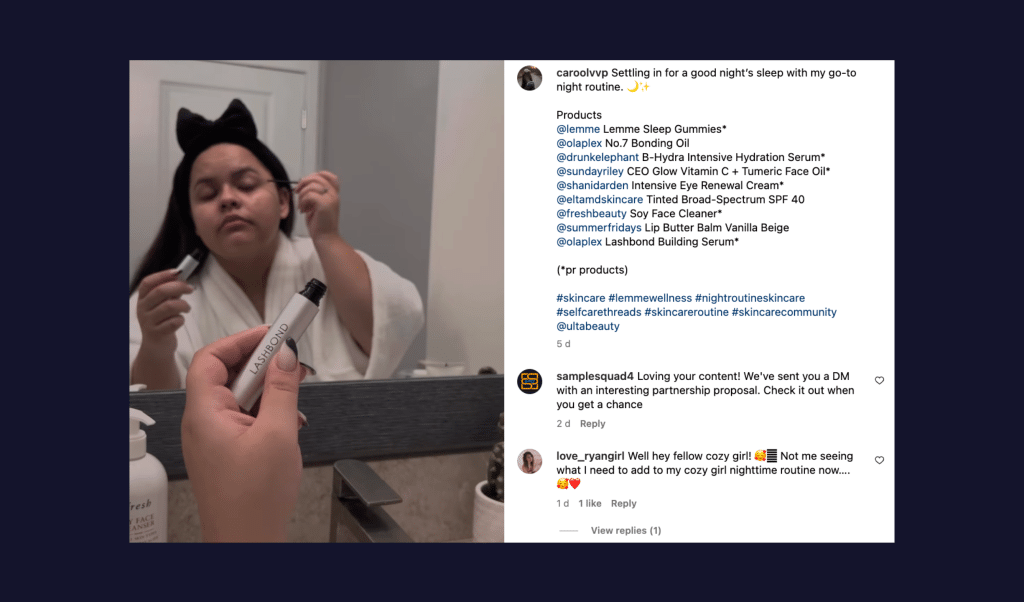
The current trend in content creation and advertising is the rise of user-generated content (UGC). This refers to content created by customers, fans, or users of a brand, including reviews, testimonials, photos, videos, and other forms of content that show the brand in use.
However, it is believed that the popularity of UGC in today’s social media landscape can be attributed to several factors:
Creators are more authentic
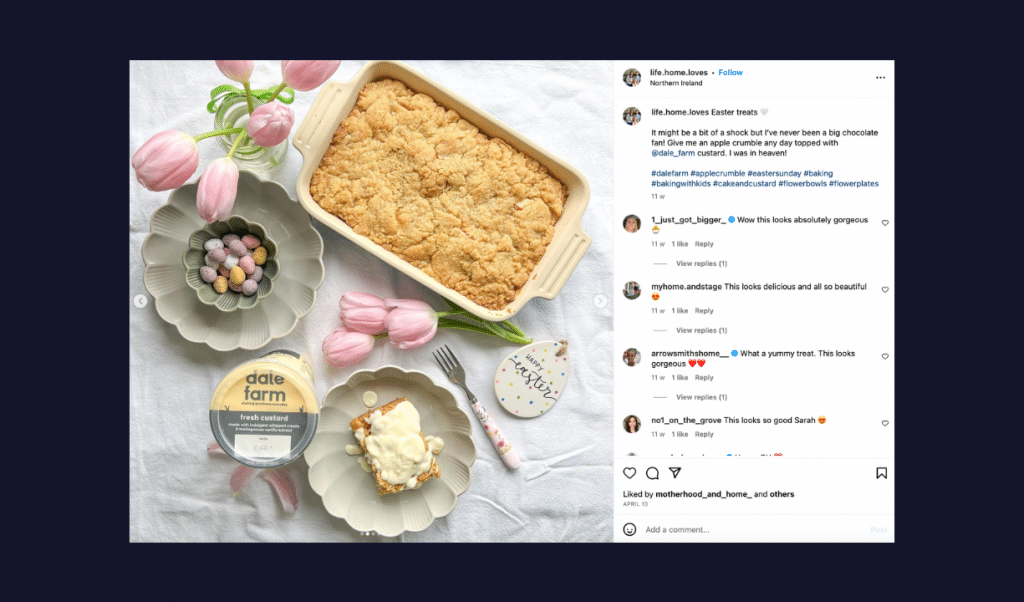
In an age where consumers are constantly bombarded with advertising, UGC provides a breath of fresh air. It’s content created by real people sharing their genuine experiences with products or services. This authenticity is highly appealing to consumers who are increasingly sceptical of traditional advertising.
UGC creators have more trust
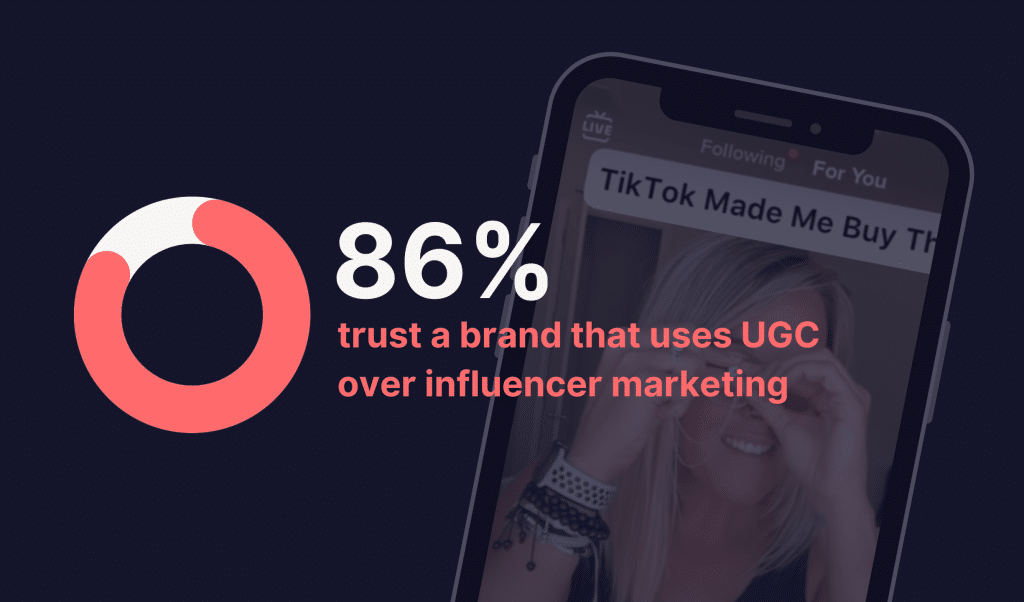
A recent study revealed that 86% of consumers are more likely to trust a brand that publishes user-generated content, compared to just 12%, who are inclined to purchase a product promoted by an influencer. This goes to show that people are more likely to trust the word of a fellow consumer over a brand. This makes UGC a powerful tool for building brand trust and credibility.
UGC sometimes have better engagement rates
UGC encourages engagement. When users create content related to a brand, they are actively interacting with it. This not only strengthens the connection between the consumer and the brand but also generates more visibility and reach on social platforms due to the interactive nature of the content.
UGC is more cost-effective
Unlike traditional advertising or influencer marketing (which can be expensive), UGC relies on content voluntarily created and shared by users. This makes it a cost-efficient way for brands to gain exposure and engage with their audience.
UGC has an influencer on purchase decisions
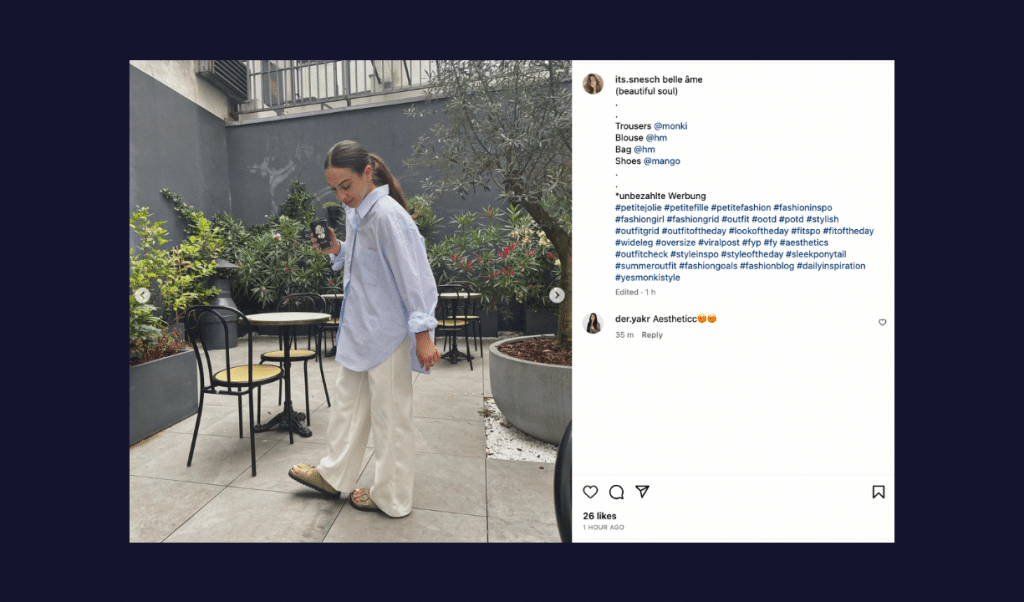
UGC significantly impacts consumers’ purchasing decisions. When potential customers see real-life experiences of others using the product, they are more likely to make a purchase. A really good example of this would be fashion brands like H&M… with thousands of content creators tagging them in their photos and videos wearing their products.
UGC content is more diverse
UGC offers a wealth of diverse content, with different perspectives and experiences being shared. This variety can make a brand’s social media presence more interesting and dynamic.
Balancing UGC and influencer marketing
While UGC is rising, influencer marketing is far from obsolete. Each approach has its strengths and can be the right choice in different contexts.
Influencer marketing works exceptionally well when introducing a new product or brand to the market. Influencers, with their vast reach and trust among their followers, can quickly raise awareness and generate interest in the brand or product. It’s also useful when the brand wants to reach a specific demographic, as influencers often have a well-defined follower base.
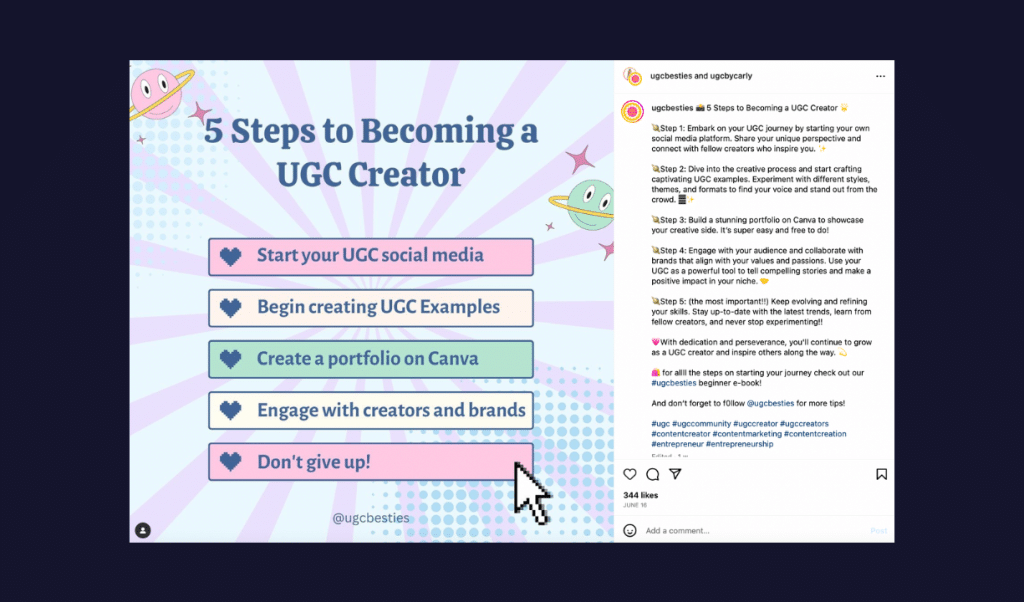
On the other hand, UGC is excellent for creating long-term brand loyalty and trust. By promoting user-generated content, brands show that they value their customers’ opinions and experiences, which encourages a stronger connection between the brand and its audience. Moreover, UGC offers a wealth of real-world testimonies and experiences with the product, which can help potential customers make informed decisions.
Conclusion
The rise of user-generated content creators represents a shift towards a more authentic and transparent form of marketing. It doesn’t mean that celebrity endorsements or influencer marketing will disappear. Instead, we’re seeing an evolution of content creation where the power dynamics have changed.
In this era, consumers hold more power than ever before in shaping a brand’s reputation. Brands that can strike a balance between the reach and impact of influencer marketing and the authenticity and trust of UGC will be best positioned to succeed in this new landscape.
In the end, it’s all about trust. Brands that can foster trust, whether through celebrity endorsements, influencers, micro-influencers, or user-generated content, will always have a competitive edge. But as consumer behaviour evolves, so too must our approaches to marketing. The rise of user-generated content creators signifies not an end but a new beginning in the ever-evolving world of content creation.



